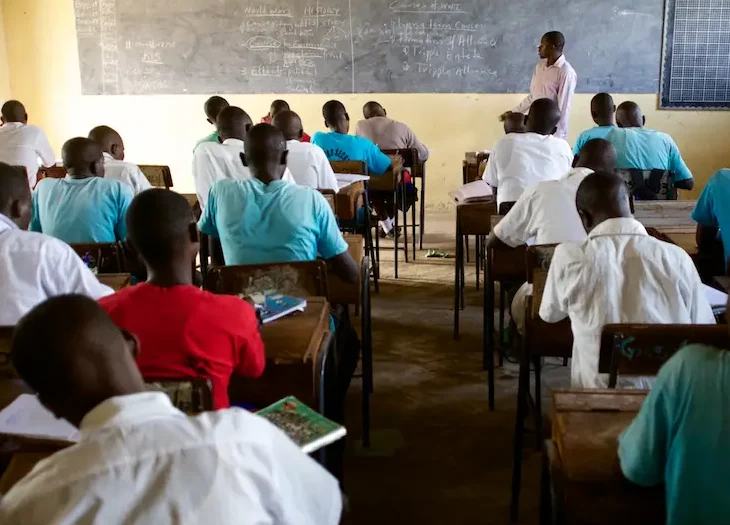A Crucial Influence on teen’s Lives
The Impact of Education on Teenagers
Education serves as a cornerstone for the development and growth of teenagers, profoundly shaping their intellectual, social, emotional, and future career trajectories. During these formative years, the experiences and knowledge gained through education play a pivotal role in defining their paths in life. This article explores the multifaceted impact of education on teenagers, highlighting its critical influence on their personal and academic development, social relationships, mental health, and future opportunities.
Academic and Cognitive Development
Knowledge Acquisition and Skill Building
Education provides teens with the essential knowledge and skills necessary for their intellectual growth. A comprehensive curriculum that includes subjects like mathematics, science, language arts, and social studies fosters critical thinking, problem-solving, and analytical abilities. These skills are foundational for success in higher education and various career paths, enabling teens to tackle complex challenges and make informed decisions throughout their lives.
Encouraging Lifelong Learning
The educational environment nurtures a culture of lifelong learning. By promoting curiosity, creativity, and a love for knowledge, schools help teens develop a growth mindset. This mindset, which emphasizes that intelligence and abilities can be cultivated through effort and learning, is crucial for continuous personal and professional development.
Social Development and Interpersonal Skills
Building and Sustaining Relationships
School is a primary social arena where teens interact with peers, teachers, and other adults. These interactions are vital for developing social skills such as communication, empathy, and cooperation. Positive relationships within the school setting provide emotional support and a sense of belonging, which are essential for overall well-being.
Navigating Social Dynamics
Education exposes teens to diverse perspectives and social dynamics, teaching them to navigate various interpersonal relationships. Through group projects, extracurricular activities, and classroom discussions, teens learn conflict resolution, teamwork, and the importance of understanding different viewpoints. These skills are indispensable in both personal and professional settings.
Emotional Well-being and Mental Health
Building Self-Esteem and Confidence
Academic achievements and participation in extracurricular activities contribute significantly to teens’ self-esteem and confidence. Success in school, whether in academics, sports, or the arts, provides a sense of accomplishment and recognition. This positive reinforcement encourages teens to set and achieve goals, fostering a sense of agency and self-worth.
Managing Stress and Anxiety
While education offers numerous benefits, it can also be a source of stress for teens. Academic pressures, homework, and exams can contribute to anxiety and mental health challenges. Schools play a crucial role in teaching stress management techniques, promoting mental health awareness, and providing access to counseling and support services. Developing healthy coping strategies during adolescence is essential for managing stress throughout life.
Career Prospects and Future Opportunities
Preparation for Higher Education
A strong educational foundation is critical for teens aspiring to pursue higher education. High school education prepares students for the demands of college and university, equipping them with the necessary knowledge and skills for academic success. Access to quality education increases the likelihood of pursuing advanced degrees, which can lead to diverse career opportunities and higher earning potential.
Enhancing Employability
Education equips teens with the qualifications and skills needed for the job market. A high school diploma is often a minimum requirement for many jobs, and further education can lead to specialized careers. Vocational training and technical education programs provide teens with practical skills and hands-on experience, enhancing their employability and career readiness.
Broadening Perspectives and Worldview
Exposure to Diverse Ideas and Cultures
Education broadens teens’ understanding of the world by exposing them to a wide range of subjects, cultures, and viewpoints. This exposure fosters critical thinking and helps them develop a well-rounded perspective. Learning about history, science, literature, and different cultures encourages teens to appreciate diversity and understand global issues.
Encouraging Civic Engagement
Educated teens are more likely to be engaged and informed citizens. Education instills an understanding of civic responsibilities and the importance of contributing to society. Courses in social studies, government, and history teach teens about democratic processes, human rights, and social justice, encouraging them to become active participants in their communities.
Conclusion
The impact of education on teenagers lives is profound and far-reaching. It shapes their intellectual, social, emotional, and professional development, providing the foundation for future success and fulfillment. By fostering a love for learning, building essential skills, and broadening their perspectives, education plays a crucial role in preparing teens for the complexities of adulthood. Ensuring access to quality education for all teens is vital for empowering the next generation and building a better future.
Share this content:






















Post Comment